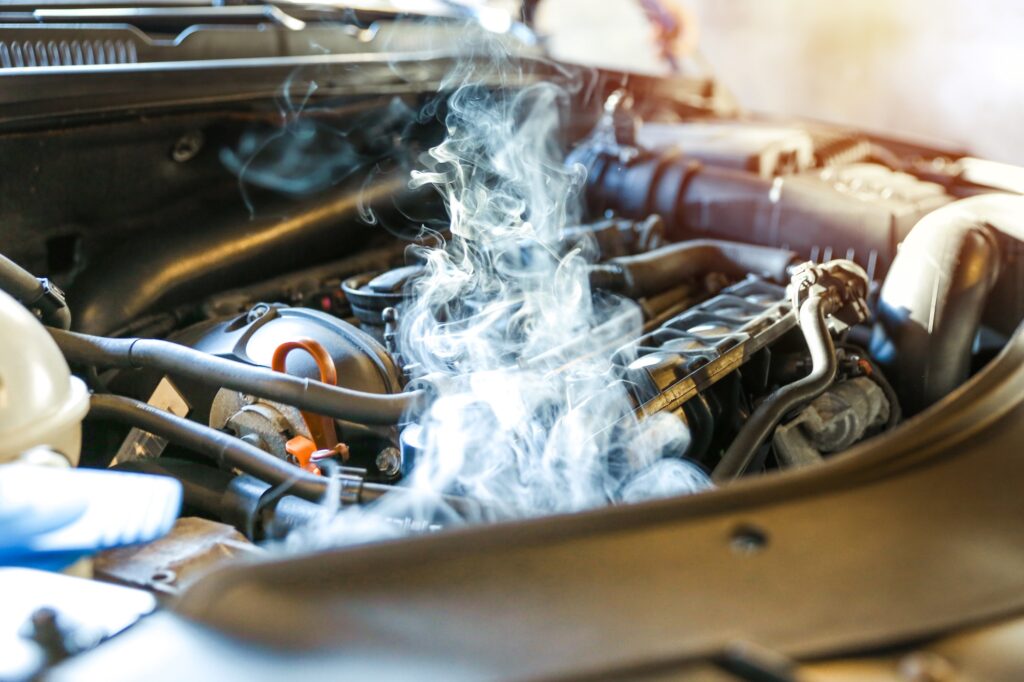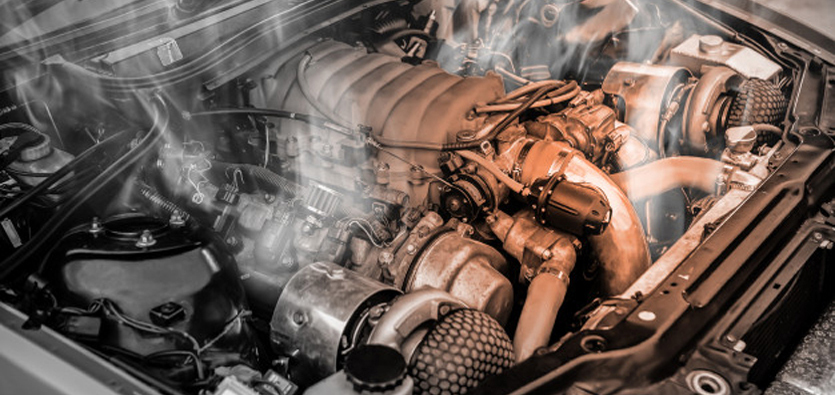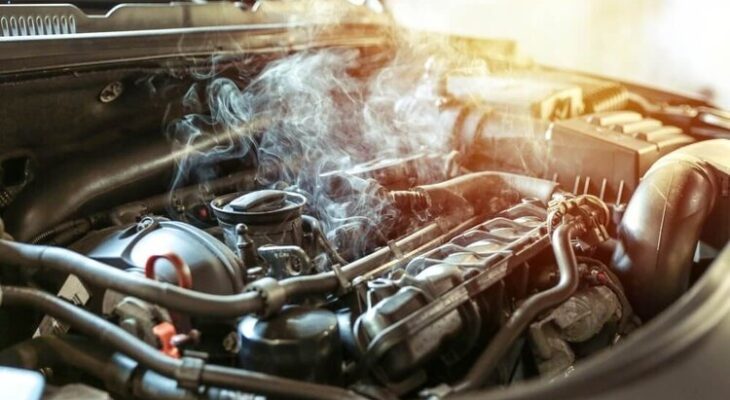Your car’s engine operates within a specific temperature range to function optimally. However, there are various reasons why your car engine might overheat, leading to potential damage and costly repairs if not addressed promptly. In this comprehensive guide, we’ll explore the common causes of engine overheating and provide practical tips on how to prevent it.
Understanding Engine Overheating:
Before delving into preventive measures, let’s understand why engines overheat. Your car’s engine generates a significant amount of heat during operation, which is typically regulated by the cooling system. This system comprises components such as the radiator, thermostat, water pump, coolant, and hoses, working together to maintain the engine’s temperature within a safe range.
When the cooling system fails to effectively dissipate heat or regulate temperature, the engine can overheat. This can occur due to various reasons, including:
- Low Coolant Level: Insufficient coolant in the system reduces the cooling capacity, leading to overheating. Coolant levels can drop due to leaks, evaporation, or neglecting regular maintenance.
- Coolant Leaks: Leaks in the cooling system, such as from hoses, radiator, water pump, or gaskets, can cause a loss of coolant, resulting in overheating. These leaks may be visible as puddles under the car or detected through low coolant levels.
- Faulty Thermostat: The thermostat regulates coolant flow to the radiator based on engine temperature. A malfunctioning thermostat can fail to open properly, restricting coolant flow and causing overheating.
- Radiator Issues: Problems with the radiator, such as clogs, corrosion, or damage to the fins, can impede heat dissipation and lead to overheating.
- Water Pump Failure: The water pump circulates coolant through the engine and radiator. A faulty water pump can result in inadequate coolant circulation, leading to overheating.
- Cooling Fan Malfunction: The cooling fan helps dissipate heat from the radiator. Malfunctions in the fan motor, relay, or sensors can prevent proper cooling, especially in traffic or at low speeds.
- Blocked Radiator or Hoses: Debris, dirt, or contaminants can accumulate in the radiator or hoses, obstructing coolant flow and causing overheating.

Symptoms of Engine Overheating:
Recognizing the signs of engine overheating is crucial for addressing the issue before it causes significant damage. Common symptoms include:
- Temperature Gauge in the Red: If your car’s temperature gauge indicates that the engine is running hotter than normal or in the red zone, it’s a clear sign of overheating.
- Steam or Smoke from the Engine Bay: Steam or smoke rising from the engine bay suggests coolant leakage or overheating components.
- Burning Odor: A burning smell, often resembling hot coolant or engine oil, may indicate overheating or fluid leaks onto hot engine components.
- Loss of Engine Power: Overheating can lead to a loss of engine power or performance as the engine struggles to operate under high temperatures. More details can be found at the link: https://outdoorlogic.net/how-to-repair-a-ford-f-150-f-250-f-350-key-fob/
- Dashboard Warning Lights: Some vehicles are equipped with warning lights for coolant temperature or engine overheating. If these lights illuminate, it’s essential to address the issue promptly.
Consequences of Engine Overheating:
Ignoring engine overheating can have severe consequences, potentially resulting in:
- Engine Damage: Prolonged overheating can cause irreversible damage to engine components, such as cylinder heads, pistons, and gaskets, leading to costly repairs or engine replacement.
- Warped Cylinder Head: Excessive heat can cause the cylinder head to warp, compromising the seal between the head and engine block and resulting in coolant leaks or engine failure.
- Blown Head Gasket: Overheating can cause the head gasket to fail, allowing coolant to leak into the combustion chamber or oil passages, leading to engine damage and reduced performance.
- Seized Engine: In extreme cases, overheating can cause engine components to expand and seize, rendering the engine inoperable and requiring extensive repairs or replacement.
How to Prevent Engine Overheating:
Preventing engine overheating requires regular maintenance and proactive measures. Here are some tips to help keep your engine cool:

- Monitor Coolant Levels: Check the coolant level regularly and top it up as needed using the manufacturer-recommended coolant type. Inspect the coolant reservoir and radiator for leaks.
- Flush and Replace Coolant: Follow the manufacturer’s recommended coolant flush intervals to remove contaminants and replenish the coolant’s corrosion inhibitors. Replace coolant as necessary to maintain optimal cooling system performance.
- Inspect Hoses and Belts: Periodically inspect radiator hoses, heater hoses, and drive belts for signs of wear, cracks, or leaks. Replace any damaged or deteriorated components to prevent coolant leaks and system failures.
- Check Thermostat Operation: Test the thermostat periodically to ensure it opens and closes properly. Replace a malfunctioning thermostat to maintain consistent coolant flow and temperature regulation.
- Inspect Radiator and Cooling Fan: Clean debris, dirt, or bugs from the radiator and cooling fan regularly to ensure adequate airflow. Test the cooling fan operation and replace any faulty components as needed.
- Maintain Proper Engine Cooling: Avoid prolonged idling, heavy towing, or driving in extreme temperatures whenever possible, as these conditions can strain the cooling system and lead to overheating.
- Address Warning Signs Promptly: If you notice any symptoms of engine overheating, such as elevated coolant temperature or unusual odors, pull over safely, turn off the engine, and allow it to cool. Inspect the cooling system for leaks or malfunctions and address any issues promptly to prevent further damage.
By following these preventive measures and staying vigilant for signs of engine overheating, you can maintain optimal engine performance and prolong the lifespan of your vehicle’s engine. Regular maintenance and proactive measures are key to preventing costly repairs and ensuring reliable operation on the road. If you’re unsure about diagnosing or addressing engine overheating issues, consult a qualified mechanic for professional assistance.
